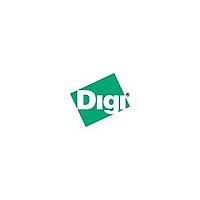FS-935 Digi International, FS-935 Datasheet - Page 47

FS-935
Manufacturer Part Number
FS-935
Description
JTAG-BOOSTER FOR IDT64145 3.3V
Manufacturer
Digi International
Series
Digi/FS Forthr
Type
FLASHr
Datasheet
1.FS-935.pdf
(48 pages)
Specifications of FS-935
Contents
Programmer and Associated Interface Software
For Use With/related Products
IDT64145 3.3V
Lead Free Status / RoHS Status
Lead free / RoHS Compliant
3. Implementation Information
This chapter summarizes some information about the implementation of the
JTAG-Booster and describes some restrictions.
JTAG145a.doc
In the IDT RC64145 a system reset does also reset the JTAG interface.
Observing the pin SYS_RST# (i.e. with function /PIN? or /SAMPLE) is not
possible.
The IDT RC64145 does not have a TRST# pin. The reset of the JTAG
interface is connected (internally to the IDT RC64145) to the system reset
(Pin SYS_RST#). We recommend not to connect the system reset with the
TRST# pin of the JTAG connector. Otherwise the target is reset on any
starting of the JTAG-Booster and the function /SAMPLE (see chapter 2.11)
does not work.
The JTAG-Booster uses the 32 Bit mode of the JTAG chain. To configure
the JTAG interface a pullup resistor is needed at the TDI pin. At end of the
system reset (signal SYS_RST#) the TDI pin is sampled to configure the
length of the chain. The IDT 64145 should be the first part in the JTAG
chain (nearest to TDI) to get best control of the TDI pin.
If the IDT RC64145 is configured to the wrong mode, the JTAG booster
aborts with an error message. In this case the target power should be cycled
while the JTAG-Booster is not attached to the target.
The pin SYS_DEVOE# must be connected to the output enable pin of the
Flash-EPROM.
The pin SYS_DQMWE1# must be connected to the write enable pin of the
Flash-EPROM. The pin SYS_DQMWE0# is not available in the 32Bit JTAG
chain and can not be used.
Even if there are byte wide devices used, connect SYS_DQMWE1# to all
write enable inputs of the Flash-EPROMs.
47
















